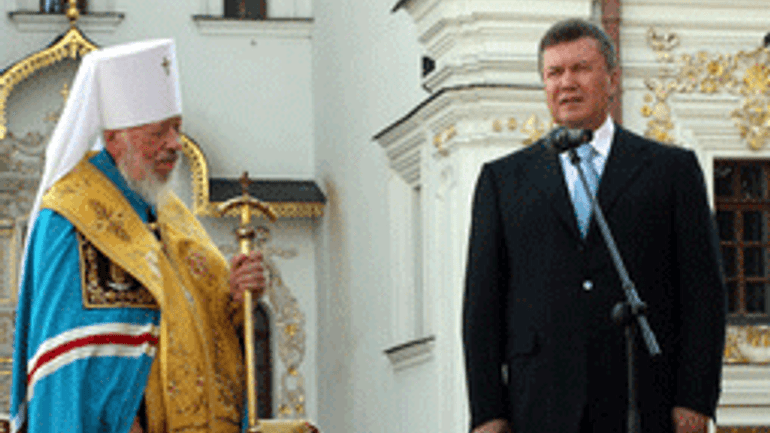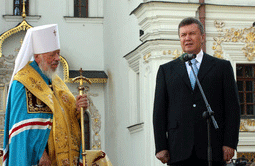Head of Ukrainian Orthodox Church reminds president that churches are not subjects of business activity

 In view of the recent rise of the utility tariffs for religious organizations, on September 8, the head of the Ukrainian Orthodox Church-Moscow Patriarchate (UOC-MP), Metropolitan Volodymyr, sent a letter to President Viktor Yanukovych asking the head of the state to “pay attention to the problem,” reported Orthodoxy.org.ua.
In view of the recent rise of the utility tariffs for religious organizations, on September 8, the head of the Ukrainian Orthodox Church-Moscow Patriarchate (UOC-MP), Metropolitan Volodymyr, sent a letter to President Viktor Yanukovych asking the head of the state to “pay attention to the problem,” reported Orthodoxy.org.ua.
Metropolitan Volodymyr noted that the “authorities equalized religious organizations with enterprises and religious activity with entrepreneurship and the clergy and believers, at whose expense the church buildings are maintained, with entrepreneurs.”
“A church is a house of God and not a subject of economic or entrepreneurial activity. A religious community is a spiritual family and not a company,” stressed the head of the UOC-MP in his letter to the president. He also noted that a religious community can carry out some activity, but that activity is not entrepreneurial but, primarily, liturgical, educational and charitable. It is this activity from where the religious community will now have to deduct funds to be able to cover the raised costs of the utilities. Some parishes will have to give up heating and use of power.”
Therefore, Metropolitan Volodymyr called Yanukovych to “do everything possible to restore justice by the beginning of the heating season and ensure that religious communities pay for the utilities according to the tariffs envisaged for the general population and not for enterprises.”
Let us remind that last June, the Cabinet of Ministers annulled the resolution of the previous government on reduced utility tariffs for religious organizations.
This is envisaged by Resolution 869 “On ensuring a unified approach to the formation of tariffs for the housing utilities” passed on June 1, 2011, by the Cabinet of Ministers, reported the Institute for Religious Freedom.
Therefore, the government annulled the resolution from February 24, 2010, which set the tariffs for religious organizations equal to the tariffs envisaged for the general population for heating, hot water, water supply and drainage.









